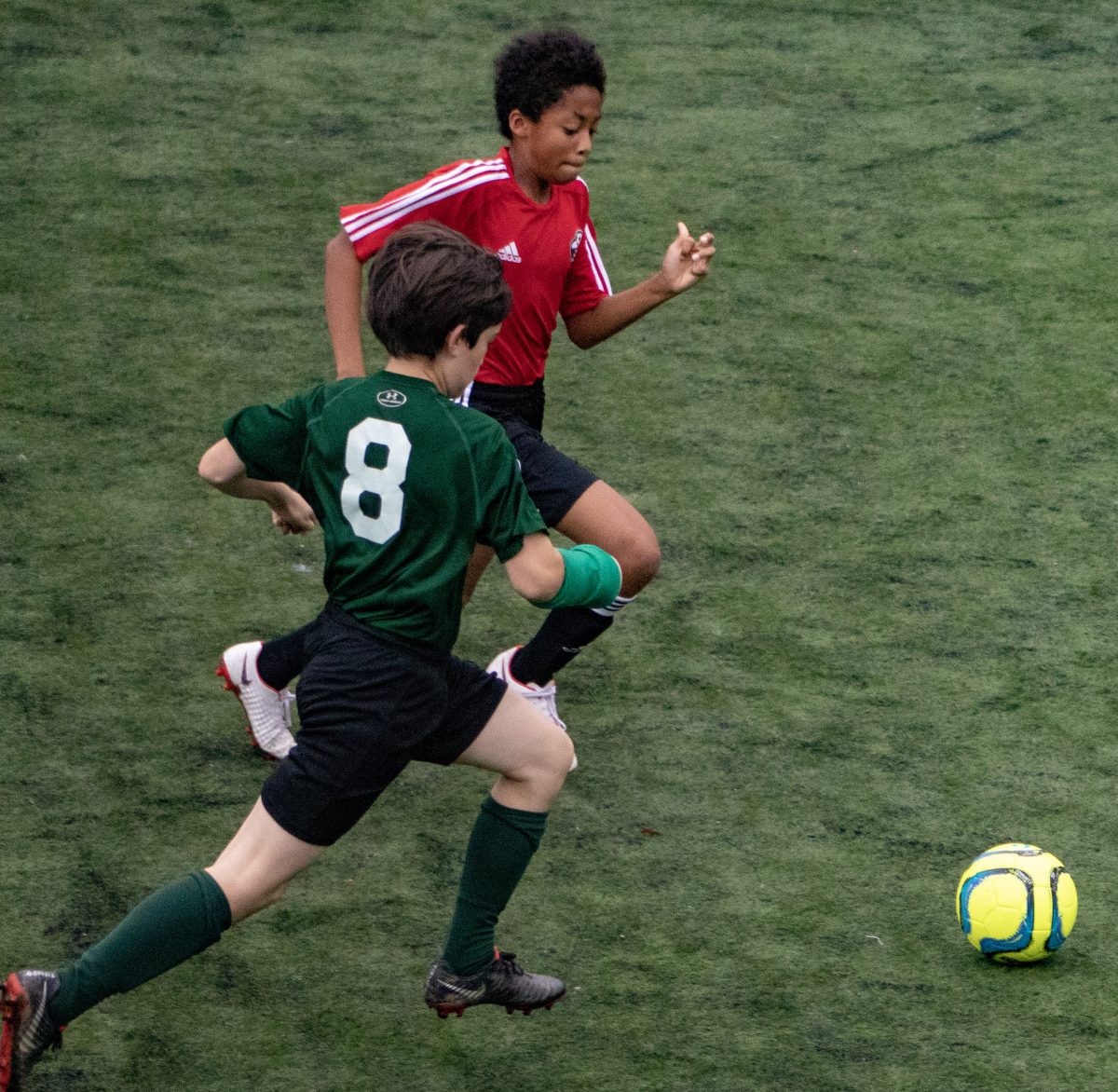As my time in school went on, I noticed that there are two types of athletes: those who were focused or “specialized” on one sport and others who seemed to like trying and playing multiple sports. I was always intrigued as to why someone would focus on a single sport. Something or someone must have convinced them that this was a good approach to sports. What was their motivation?
Growing up, I was always told that playing sports would be good for me. Beyond the obvious health benefits, I was told there were other things that I could learn from playing sports. For instance, the value of hard work, the importance of being a part of a team and learning to work together toward a common goal. Finally, it would be an early life lesson on how to burn energy and escape the stress of a day.
What may be influencing high school athletes to focus on one sport is that as kids we hear about the hard work, determination of many professional athletes and we want to emulate them. This digital connection to professional athletes today is so very different and can really influence our decisions. Athletes feel the need to become immersed in a single sport and do whatever is necessary to become the best athlete that they can be.
Unfortunately, what we don’t always hear is how risky sports specialization can be. According to an Ohio State University study, kids who play a single sport are more likely to quit their sport and be physically inactive as adults. In fact, according to an article in “Changing the Game Project”, a survey of college athletes by the American Society of Sports Medicine found that 88 percent of college athletes played more than one sport when they were kids. This message is clearly not resonating with kids today, as everywhere you look there are excellent student-athletes that are focused on one sport. But why is this and when did this movement begin?
The Athletic Director of Washington International School, Tomas O’Mara was once a very highly regarded high school baseball and basketball player. According to O’Mara, “This trend towards specialization has been a slow trend that has been taking place over the past ten to fifteen years. This isn’t occurring only at WIS, it also is happening at many other schools.” O’Mara believes that many athletes are convinced that in order to become an elite athlete you need to pick one sport and work on just that sport.
While O’Mara admits that there are benefits to these athletes in improving their play in this sport, it is offset by a higher likelihood of injuries related to the overuse of the same muscles. He stressed that this could be avoided by taking a three-month break from the sport. While he acknowledged that multi-sport athletes do suffer injuries, his experience is that these injuries occur less frequently and are less severe.
While O’Mara was reluctant to name any specific students at WIS who have “burnt out” on a sport, he acknowledges that there have been some outstanding high school soccer players who no longer play. He feels that the best approach for the student-athlete is to play multiple sports. O’Mara believes that playing different sports may actually make you a better all-around athlete.
His beliefs are supported by a recent study. According to a 2015-2016 National Federation of State High School Associations (NFHS) study, “Athletes who specialized in one sport were twice as likely to report previously sustaining a lower-extremity injury while participating in sports (46 percent) than athletes who did not specialize (24 percent).”
Angelie Talapatra
So, why do some high school athletes specialize in one sport? To find the answer I spoke with one of my fellow students, Camila Cubeddu. Cubeddu has spent most of her sports career playing soccer and she does so at a high level. Her time has been spent on travel teams, recreation teams, and school teams. She also plays or practices soccer as many as 4-5 days per week at times.
When asked why she chose to go down this path, she was very firm in her response stating, “Specializing in soccer provided me with the opportunity to focus my time and energy on one sport and get better at it.” She also said this was her choice and that her parents encouraged her to do what made her happy but cautioned her to be serious and committed. Unlike many of her peers, she has no real aspirations to play at the college level.
While specializing in high school may make sense for those looking to really improve their game, it is important to know that less than 7 percent of high school athletes move on to college sports. Also, only 3 percent of them earn an athletic scholarship. When you consider the increased likelihood for injuries, the amount of time you have to devote to the sport, the number of athletes who burn out on the sport, and the very slim chances of ever playing at a very high level beyond high school, the risks of specializing in one sport may not outweigh the rewards.
One important question for athletes to ask themselves is whether specializing is really necessary to become an elite athlete. We, if you are looking for evidence of how multi-sport athletes can still thrive, look no further than this year’s Heisman Trophy winner for the most outstanding college football player in the county, Kyler Murray. Murray was not only named the best football player in the country but he was also drafted by the Oakland Athletics to play major league baseball. While he is a very noteworthy example of high-level, multi-sport athlete, there are countless others.
In the end, it is up to the student-athlete as to what they decide. I believe that it’s important to know that while there are short term gains to being committed to a single sport, there are also long term negatives implications that in the end may make specializing a risky proposition.
By Siena Del Sontro



































































